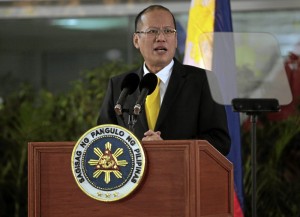Gov’t pressed on economic reforms
After consolidating power during the recent mid-term elections, now is the time for President Aquino to “sink his teeth” into substantial reforms to raise the productivity and efficiency of the economy, according to a research report by British banking giant HSBC.
HSBC said the outcome of the recent elections—in which the administration is poised to take control of both the House and the Senate—raised expectations that the President would use his stronger mandate to push forward stronger steps to tackle the country’s structural challenges: Low investment and jobs growth.
“Raising public investment, loosening of FDI (foreign direct investments) restrictions on foreign ownership and improving the business environment are all required reforms to address the economy’s structural weakness,” said the May 16 report titled “Stronger Mandate” and written by HSBC economist Trinh Nguyen.
Since coming to office in May 2010, the current administration has made gradual progress to lift the profile of the Philippines as the administration has raised the efficiency of public spending and closed tax loopholes to raise revenue collection, instilling confidence in the governance of the country.
Such important steps built the foundation for deeper reforms and the upgrade of the sovereign to investment-grade status by two rating agencies. But Nguyen said these reforms were not enough to: raise revenue, reduce regulatory bottlenecks and attract foreign direct investments (FDIs) to strengthen the manufacturing sector, raise productivity and diversify the economy.
Article continues after this advertisementNguyen said economic indicators in the first quarter were reflective of the structural issues weighing on the economy: A gradual loss of manufacturing sector competitiveness, an over-reliance on services and weak revenue generation. She added that the erosion of manufacturing competitiveness, particularly in the electronics sector, had contributed to the recent export contraction. As a result, she noted that the economy had become more dependent on remittance flows.
Article continues after this advertisement“The State of the Nation Address in July will reveal President Aquino’s reform agenda for the remainder of his term. A relaxation of foreign ownership for some sectors is possible and measures to raise revenue collection—such as mining reform—are also expected. But deeper reforms are needed for the Philippines’ fortunes truly to turn,” Nguyen said.
“Hope is pinned on Aquino using his mandate to deliver potent policy actions that can help the Philippines capitalize on its favorable demographics and fulfill its economic potential,” she said.
While the Philippines impressed the international community with a strong 6.6-percent year-on-year gross domestic product (GDP) growth in 2012, the report said much of the growth was because of a favorable base effect, accommodating fiscal and monetary policy and strong remittances.
While rising remittance inflows support private spending, they have also put pressure on the peso to appreciate. Such local currency appreciation, the report said, has added to the headwinds “that have, over time, sapped the competitiveness of the export sector, including deteriorating infrastructure, an inefficient labor market and worsening business environment.”
The report also noted that the gradual decline of the manufacturing sector (most vividly represented by the fall in exports as a share of GDP) has raised the Philippines’ dependence on the service sector and caused a loss of job opportunities, especially for low-skilled workers.
